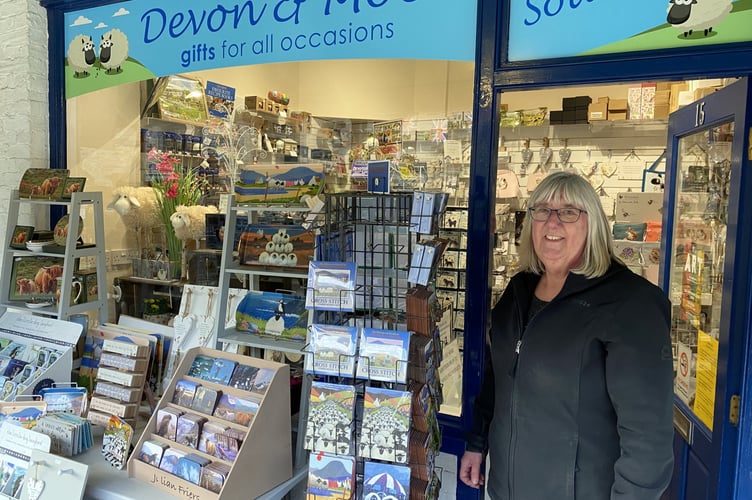There can be few more shining examples of the success of adoption than Christine Rickard.
With the subject of adoption flagged up by it being National Adoption Week, the Tavistock shopkeeper is happy to shout out about the benefits of being brought up in a loving home by a second set of parents.
Christine was born out of wedlock and given away by her biological mum in the 1950s – a time when unmarried mothers were frowned on by society. There was no choice then, but to have them taken away and given up for adoption.
Christine says it was very brave of her biological mum, who was only 16 when Christine was born, to agree to give her up (even though she did subsequently decide to marry Christine’s dad).
Her biological mum made the ‘mature’ decision that Christine should be adopted, thinking selflessly that the baby would be given a more stable upbringing. And this proved the case, with Christine enjoying a happy, fulfilled childhood.
Mothers were given a six-month period to change their minds after the adoption – which was likely to have been a difficult time on both sides, said Christine.
Christine, who runs a gift shop in the outer Tavistock Pannier Market, said: ”I had a fantastic childhood and I am so grateful to my adoptive parents, Peggy and Len, for giving me the best start in life. I am proud of being adopted. I would encourage anyone who is thinking of adopting to go ahead. They can make such a positive difference to a child’s life.”
She remembers her adoptive brother sticking up for them both when a neighbour’s child taunted them about being adopted. Her brother responded that the other girl’s parents effectively ‘had to have her as a baby’, but that he and Christine’s adoptive parents ‘chose to have them’.
“I was born in the fifties when not only was the adoption process different, but so was society’s views,” said Christine.,
“I was born to an unmarried teenager, she was only 16 when I was born. And being an unmarried mother was scandalous, they were not seen as fit to be mothers, they were taken to a home for unmarried mums and shown all the practicalities of bringing up a baby. So, I was put up for adoption to a married couple.
“What was rather cruel was that there was a six-month period allowing for a change of mind. In that time my biological mum must have loved me. Also, she did decide to get married, but bravely decided that it would be better for me if the adoption continued.”
Christine’s regards her adoptive parents as her true parents. They told her at an early age she was adopted and the circumstances.
She said: “It is a child’s right to know their background, so they can then decide whether to trace and possibly meet their biological parents. Children are very accepting of situations, especially when they can’t do anything to change it.”
Christine initially decided not to make contact with her biological mother after the woman made a request through social services, because it was not the right time in her life and she also felt ‘guilty’ about possibly being ‘disloyal’ to her adoptive parents. However, she did change her mind later: “I felt the time was right and also that I’d effectively rejected my biological mother by not making contact.”
She did go on to meet her biological mother and three of her four biological siblings and noticed many physical similarities as well as their shared love of history and music.
“I was nervous at meeting them. But we got on so well and intend to meet at least once a year. It was strange, at first to be in the same room with people who all looked like me for the first time in my life. But it was really comfortable.”
Christine added: “I was given a loving supportive family upbringing as an adopted child and it’s something to celebrate.”



-trophy-from-Lisa-Worledge-BCT-director-of-c.jpeg?width=209&height=140&crop=209:145,smart&quality=75)


